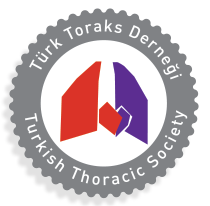Abstract
Historically snake, scorpion, and hymenoptera venom have been used to treat various diseases. It is well known that alternative and/or complementary treatment options are widely used, especially among cancer patients. The case we describe here has lung carcinoma and received blue scorpion venom as an alternative therapy. A 86 years old male patient was admitted complaining of dyspnea. Thorax computed tomography (CT) showed a mass lesion and intraparenchymal nodules on the left upper lobe. Percutaneous transthoracic biopsy was performed, and the diagnosis was reported to be an epidermoid carcinoma. After the shared decision, A shared decision with the family and oncology specialists, the patient decided to try Cuban blue scorpion venom oral drops. Initially, it was well tolerated. However on the sixth day of treatment, sudden death occurred. Scorpion venom has been considered as a natural source for cancer therapy. Rhopalurus junceus is an endemic scorpion species from Cuba. Although it belongs to the most dangerous species related to human scorpionism, and no fatal stings have been reported. Currently published articles investigate the composition and in vitro anticancer activity of the venom; there are no controlled clinical trials evaluating toxicity or effectiveness. Uncontrolled use of alternative treatment options may lead to unexpected interactions with concomitant medications.
Cite this article as: Damadoğlu E, Irmak İ, Fuat Kalyoncu A. Cuban blue scorpion venom and lung carcinoma: Is it always true what does not kill me makes me stronger?. Turk Thorac J. 2021; 22(3): 265-266.



